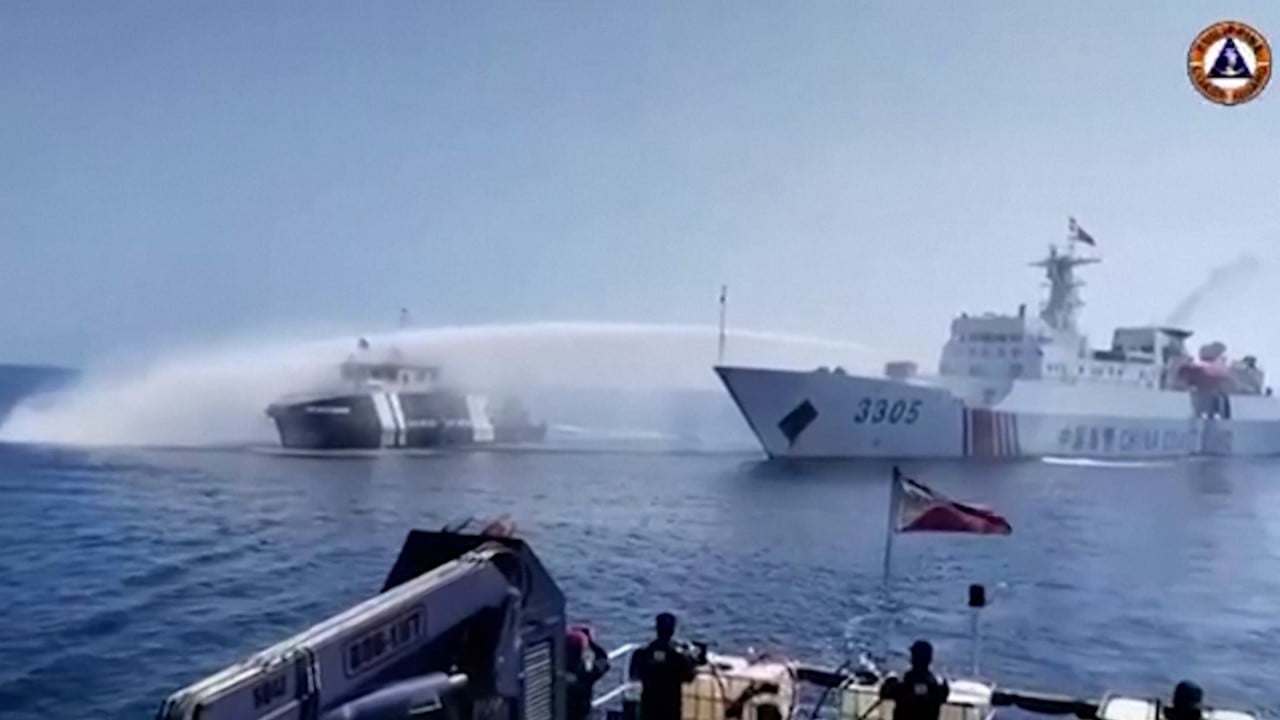Global Impact: China warns of infringing on its sovereignty, Philippines plans first submarine as South China Sea tensions continue
[ad_1]
With months of naval skirmishes with China still fresh in its minds, the Philippines this week signed a coastguard-cooperation pact with Vietnam, pledging to share information, set up a communication hotline, and work on a joint coastguard committee.
Beijing uses pinyin terms to double down on its claims over South China Sea
Beijing uses pinyin terms to double down on its claims over South China Sea
Not to be outdone, the Italian Navy is also expected to send its flagship aircraft carrier Cavour, along with its battle group, to the region this year.
60-Second Catch-up
Deep dives
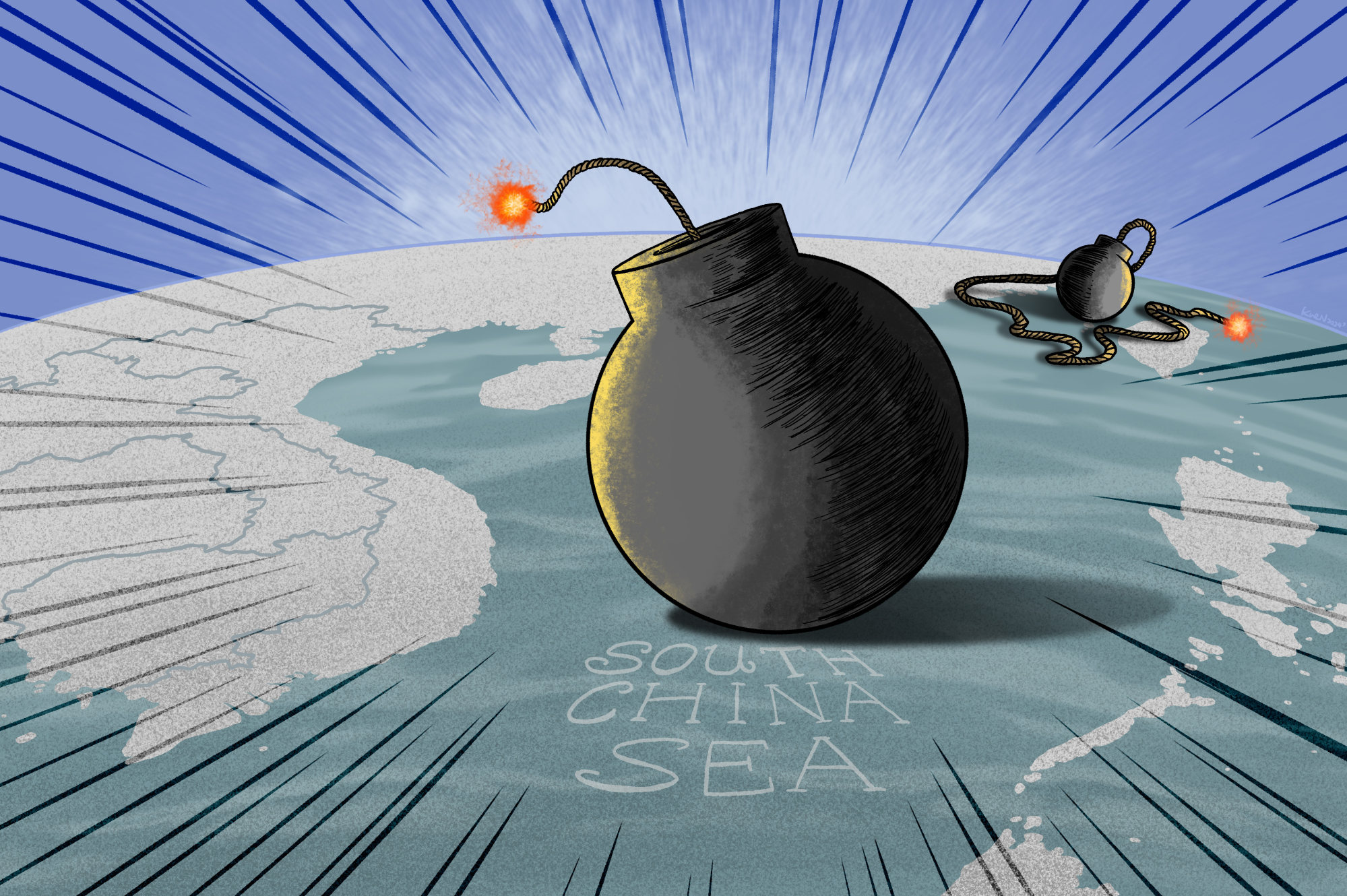
The South China Sea and Taiwan may be twin powder kegs, but which is riskier?
-
As Taiwan and its newly elected president grab the headlines, another potential hotspot for US-China ties has been brewing in the region
-
Frequent clashes between China and the Philippines in disputed South China Sea has observers weighing the costs of an alternative conflict
Beijing had long advised against a victory for Lai, from Taiwan’s ruling Democratic Progressive Party (DPP), and cast Saturday’s election as a choice between war and peace. If it now chooses to step up pressure on Taiwan, the United States might be prompted to make a tougher response, according to observers.
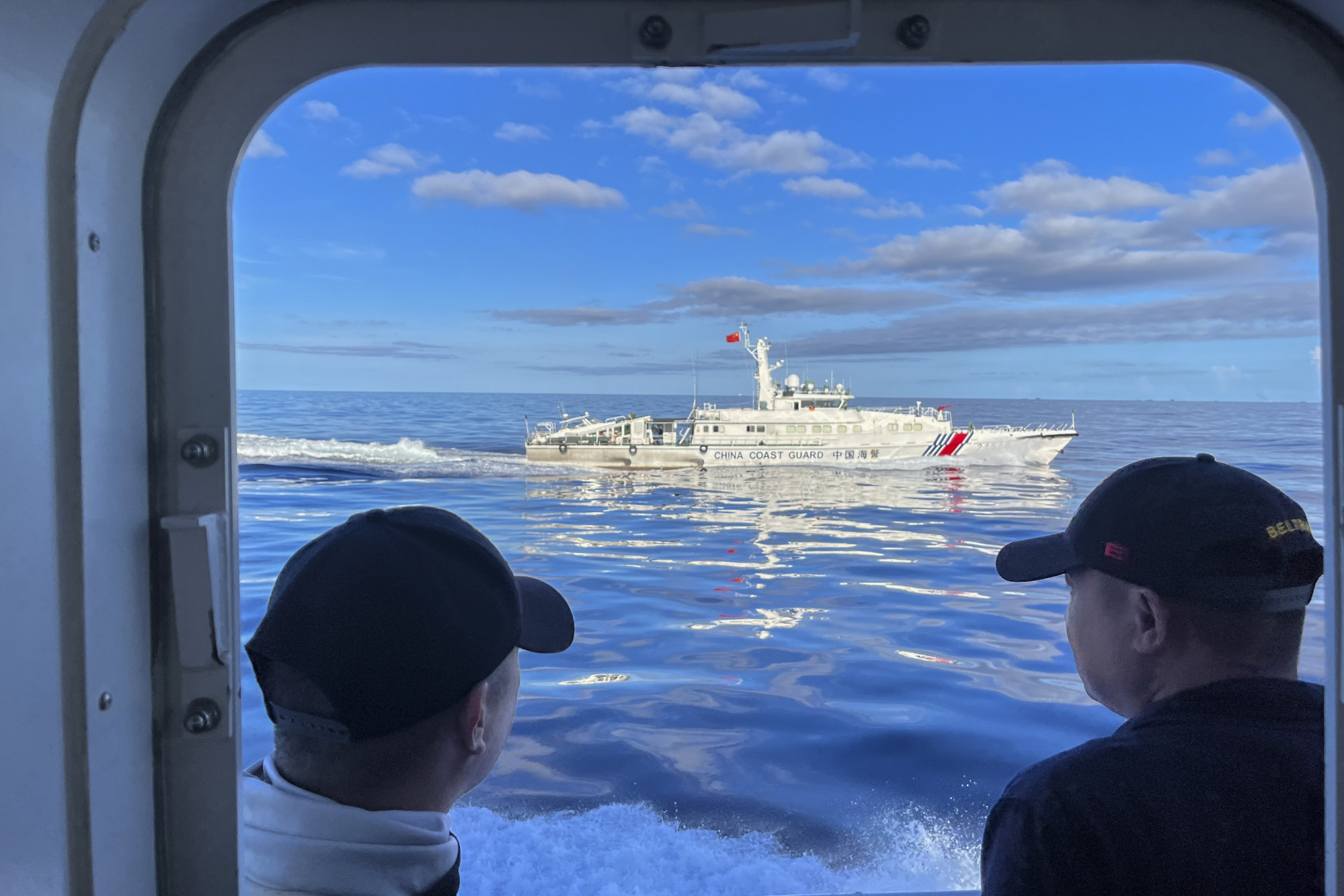
Beijing shows restraint as Philippines plans to upgrade South China Sea outposts
-
China appears to be taking ‘wait and see’ approach after Manila says it will improve facilities for troops deployed on disputed reefs and islands
-
Observers say Beijing could blockade Philippine ships – if the project goes ahead – but US involvement would complicate Chinese response
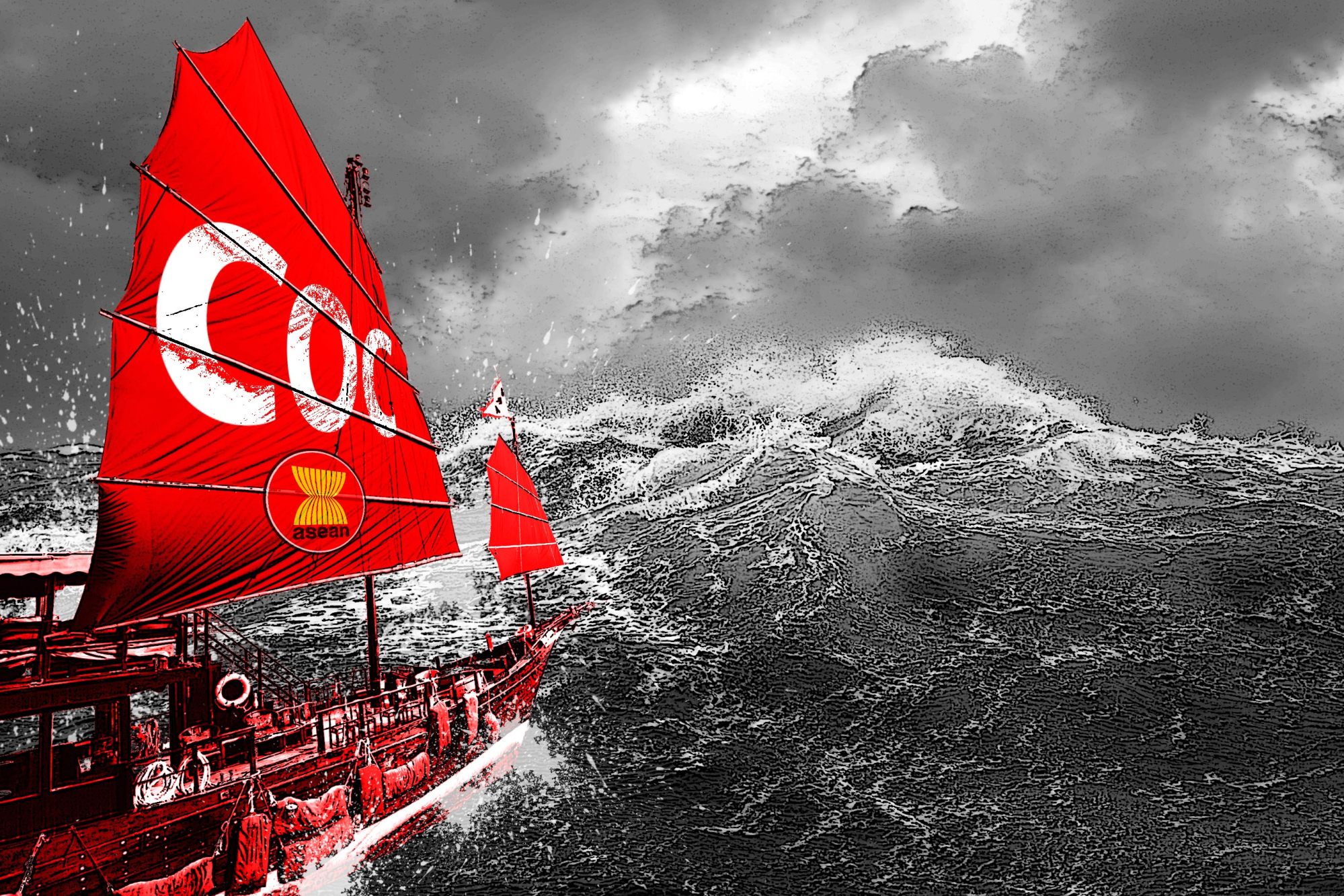
Is Beijing warming to South China Sea code of conduct?
-
Tensions with the US and a stronger negotiating position after years of reclamation are likely to be driving Beijing’s renewed enthusiasm
-
But observers say there are also signs that the Southeast Asian bloc claimants are more interested in a meaningful result than a quicker one
China, which has been accused of dragging its feet for about a quarter of a century, has taken a number of recent opportunities to show its support for an early resolution to the regional debate.
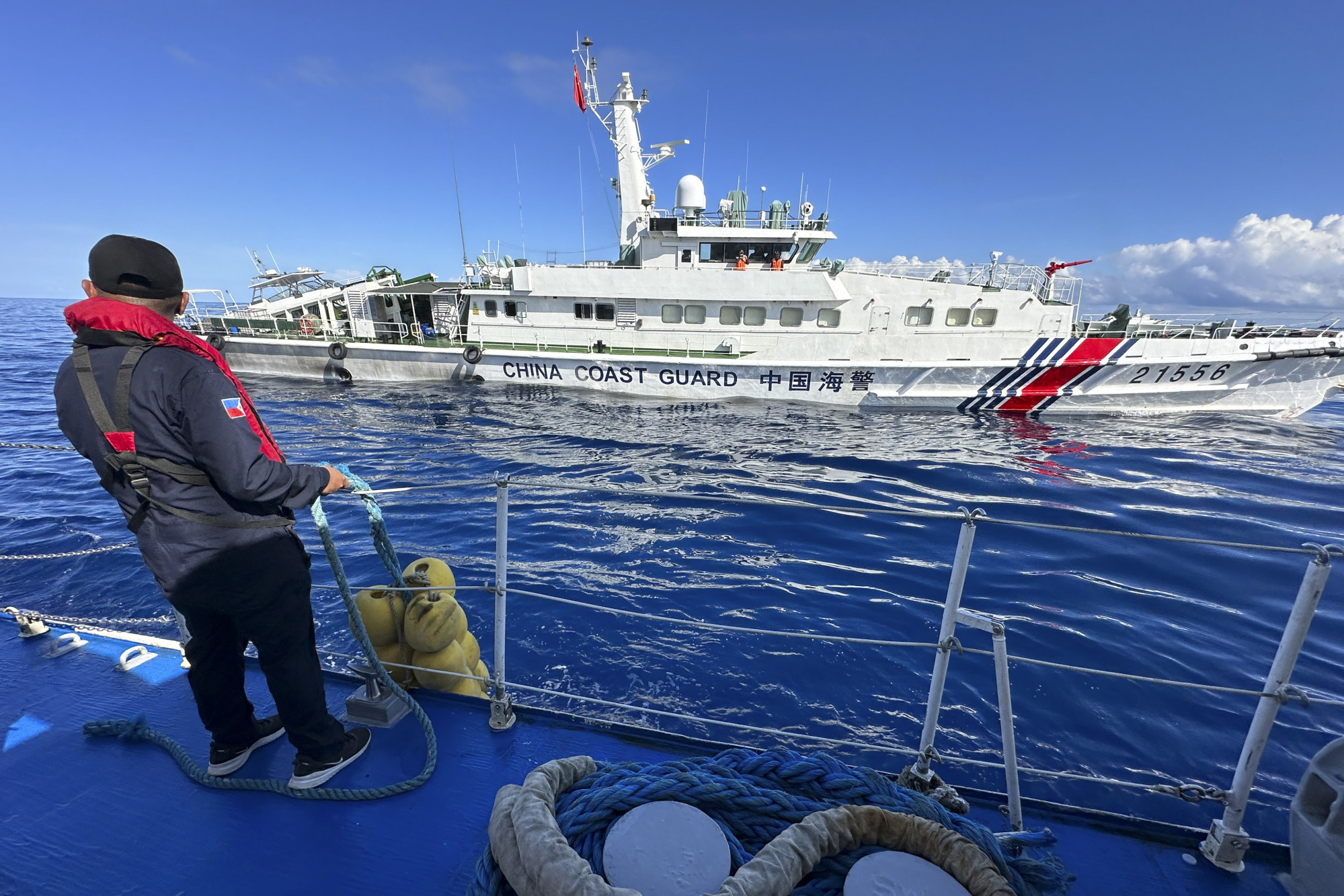
South China Sea: Beijing’s approach ‘will badly backfire in the future’
-
China could do long-term damage to its relations and influence in Southeast Asia, observers say
-
Leaders are expected to raise concerns over Beijing’s new map of the waterway during Asean summit
They said recent developments in the resource-rich waterway served as a “warning” to regional governments, which would increasingly gravitate towards the United States and its Western allies.
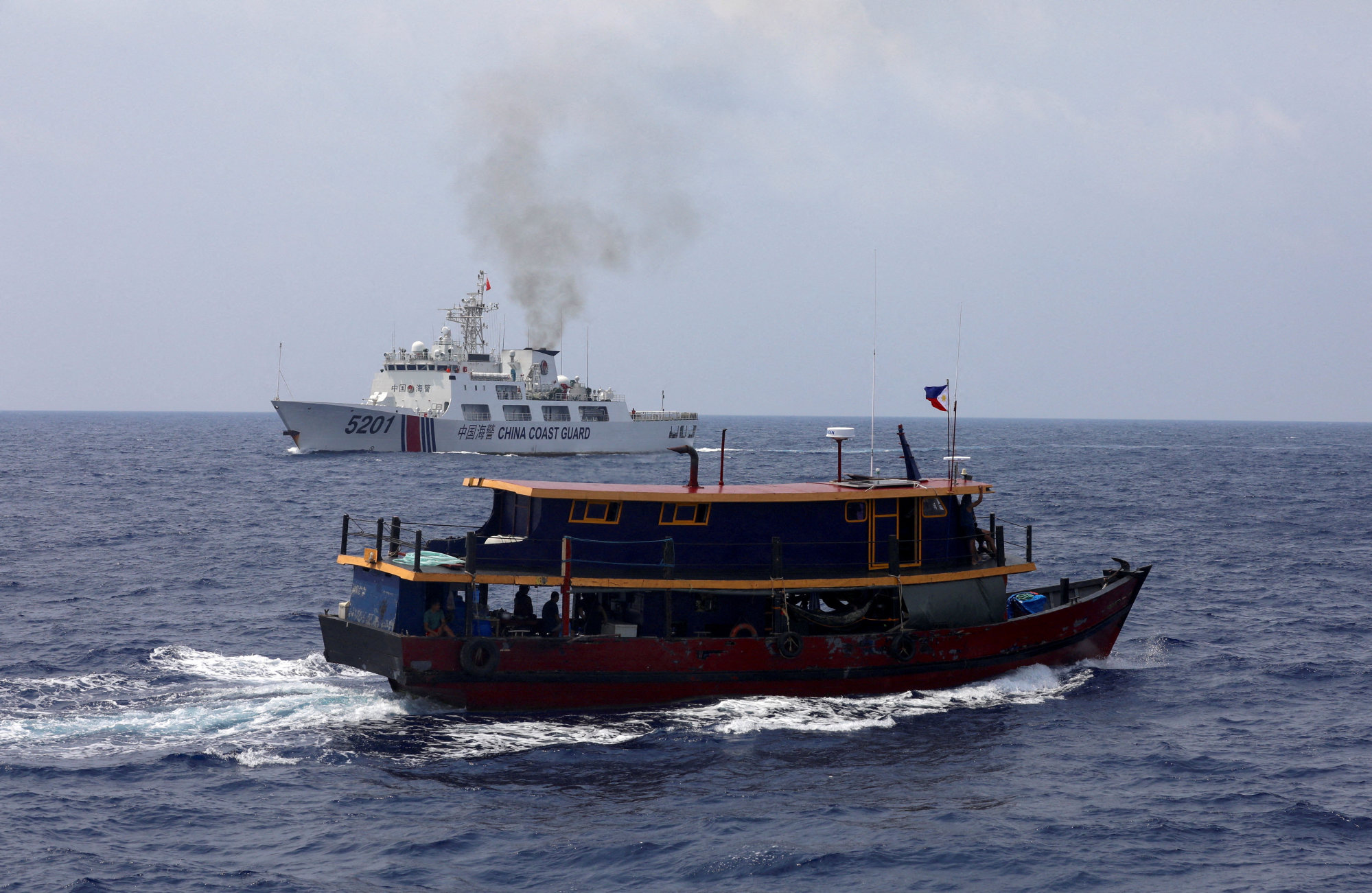
How Philippines-China ideology clash could spike tensions in disputed waters
-
The countries’ opposing ideologies amid clashing sovereignty claims could lead to years of militarisation and confrontation in the region if not contained, analysts warn
-
Manila has been boosting defence ties with various countries with the aim of building ‘collective deterrence’ in the event of conflict in the region
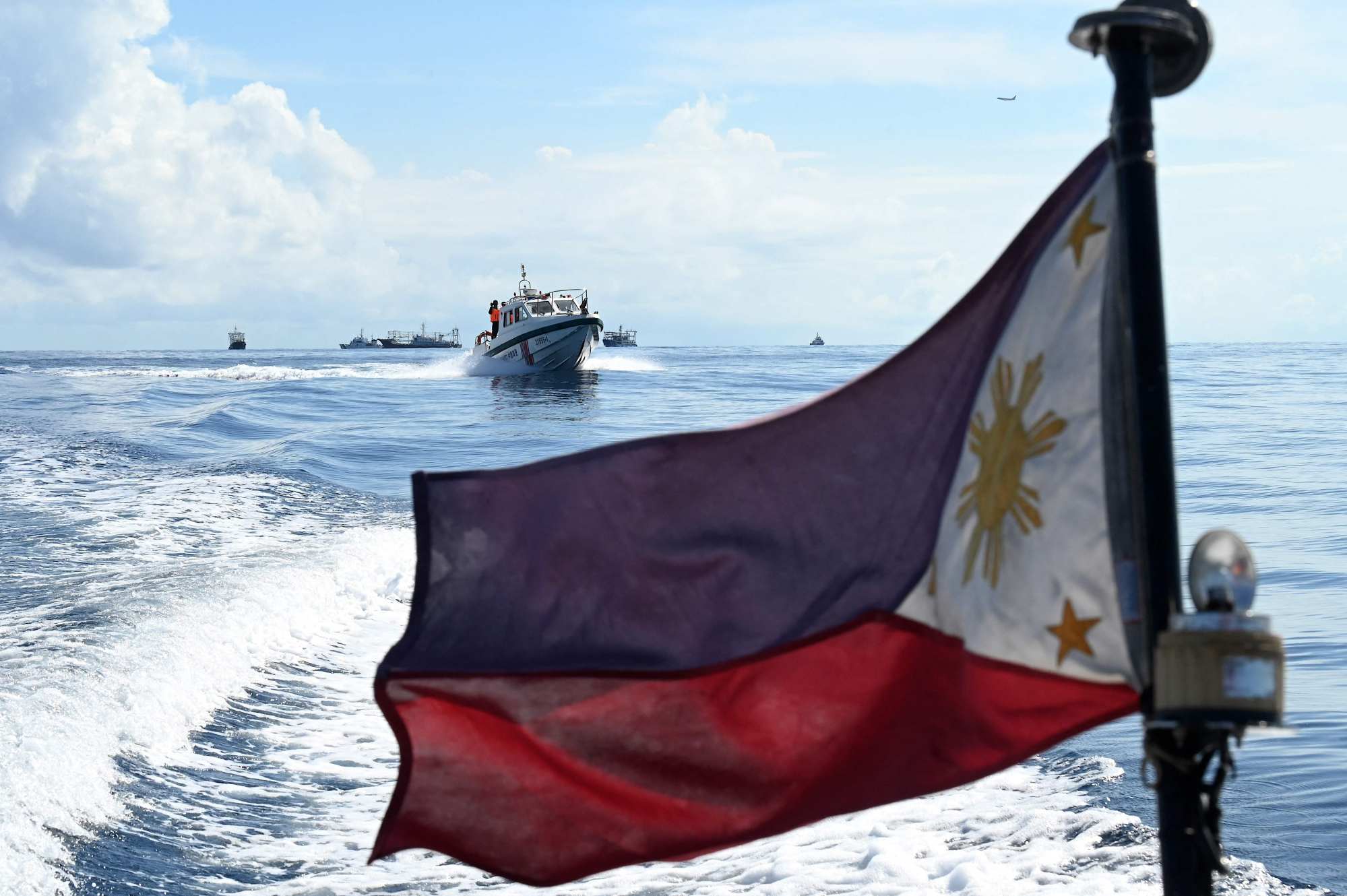
Will Manila’s plans to build in South China Sea escalate tensions with Beijing?
-
The Philippines allocates funds to build ‘permanent structure’ on disputed Second Thomas Shoal
-
The move will probably not cause ‘full-scale escalation’ of tensions but China is prepared to address further provocations, observers say

Will more assertive Philippine approach to South China Sea pay off?
-
Manila is trying to give its maritime confrontations with China maximum publicity in the hope of gaining more international support
-
Some observers question whether this approach will prompt a change in Chinese behaviour
Each time, they have complained about China’s coastguards and maritime militia obstructing their journey to the disputed reef in the South China Sea or making dangerously close passes.
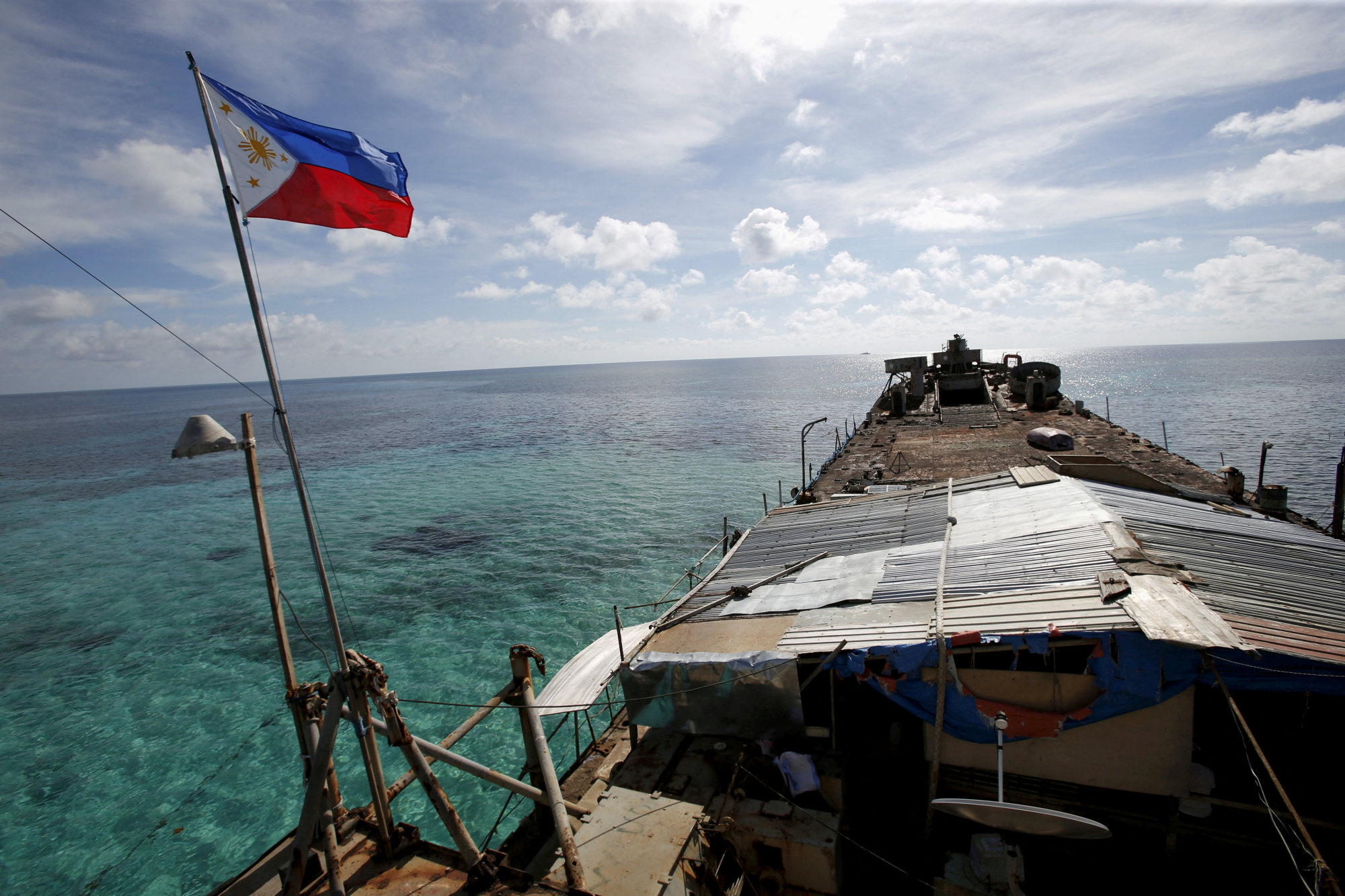
Philippines stands out in Asean over embrace of US’ Indo-Pacific strategy
-
The policy has raised ‘activity and presence’ of military exercises from the US, India, Germany and even Russia, in the South and East China seas
-
This stirs up a ‘South China Sea conflict vortex’, in which China exhibits assertiveness, buoyed by the US viewing Beijing as its ‘strategic competitor’
“The Indo-Pacific concept [by the US] is a trigger for South China Sea tensions,” Dr Supartono, director of Hang Tuah University in Surabaya, Indonesia, told the Maritime Security Conference in Metro Manila, held on November 22 by Singapore’s Asia Collective and the Manila-based International Development and Security Cooperation founded by security analyst Chester Cabalza.
Global Impact is a weekly curated newsletter featuring a news topic originating in China with a significant macro impact for our newsreaders around the world.
[ad_2]
Source link


